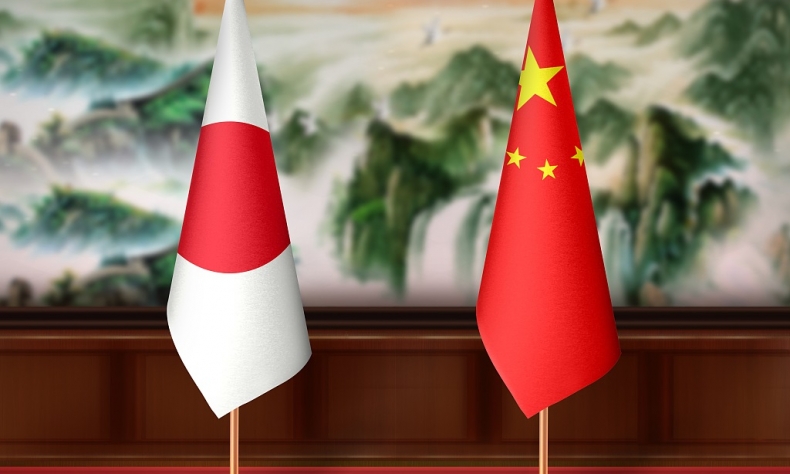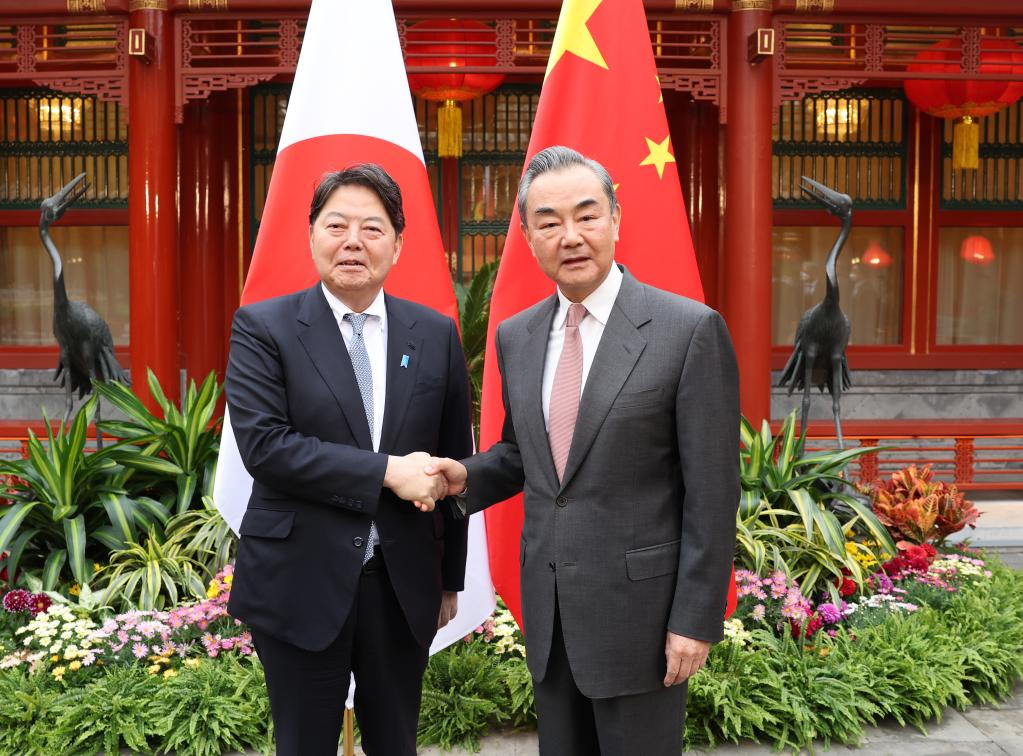Japan Partaking in American Adventurism Jeopardizes Bilateral Relations

Serving as a conduit for the United States to undertake its controversial policy of decoupling will harm Japan’s interests in the region and beyond.
The conversation earlier this month between Wang Yi, director of the Office of the Foreign Affairs Commission of the Communist Party of China Central Committee, and Yoshimasa Hayashi, Japanese minister of foreign affairs, resulted in a clear articulation of China’s vision for sustainable peace and its view of what constitutes a healthy, apolitical, strategic, and forward-looking relationship with Japan. Wang clearly stated that the current bilateral relationship has remained stable but has been subject to disturbances that must be mitigated in order for the relationship to move in the right direction. Nothing is closer to the truth.
It is clear from Wang’s stance that China desires a principle-based relationship based on reciprocity and mutual respect from Japan. While speaking to Yoshimasa Hayashi, Wang stressed how China looks forward to commemorating the 45th anniversary of the signing of the China-Japan Treaty of Peace and Friendship, which stipulates that the development of durable relations on the basis of the Five Principles of Coexistence, including mutual non-aggression, non-interference in each other’s internal affairs, and mutual respect for state sovereignty is the appropriate way forward. Furthermore, it is worthwhile that Japan adheres to the four political documents that are the bedrock of the relationship, including the 1972 China-Japan joint statement, the China-Japan Treaty of Peace and Friendship, the China-Japan Joint Declaration of 1998, and a joint statement on advancing relations in 2008, so as to help the relationship move forward. Any deviation would be unfortunate.
Note that to avoid missteps, Japan needs to change course and adhere to the essence of the strategic partnership by not becoming a pawn to the United States. The decision to partake in the Biden administration’s designs, which continuously demonize China without merit and promote great power competition in the Asia Pacific through alliances such as the Quad, constitutes short-sighted and unwise decisions by Japan. The relationship, which is based on strong trading ties, should also not be jeopardized, and the decision by Japan to restrict chipmaking equipment exports was an exercise of provocation and harmed a relationship where, in 2022, China had become its largest trading partner with the total value of trade growing by 113 times since 1972 to stand at $0.29 trillion. As a result, bandwagoning American foreign policy priorities would ensure that Japanese foreign policy lacks independence or strategic foresight.

Hence, serving as a conduit for the United States to undertake its controversial policy of decoupling will harm Japan’s interests in the region and beyond. For example, Tokyo’s decision to undertake a series of diplomatic, military, and economic moves is a regression in Japan’s policy toward China and will not help the cause. Such moves are contradictory and unfortunate as they move Japan away from its adherence to pacifism as part of its constitution and toward the hyped-up “China Threat Theory.” The Fumio Kishida administration’s plans to increase Tokyo’s defense spending by over 50%, for example, do not instill much confidence in Japan seeking to diffuse tensions and would, in turn, squander Tokyo’s own resources and place more burden on the Japanese public.
Wang Yi also urged the Japanese side to sum up the lessons of history and abide by the essence of joint understanding while speaking to Hayashi. The spirit of the four political documents between the two countries includes learning from history, promoting peaceful coexistence, and pursuing mutually beneficial cooperation and common development. This can only take place in the absence of zero-sum thinking and the correct perception of China from the Japanese side.
The meeting between the two diplomats did result in Japanese Foreign Minister Yoshimasa Hayashi stating that Japan is willing to work with China to implement the consensus reached between the two countries and achieve a win-win situation in response to Wang’s suggestion that Japan should avoid zero-sum thinking. It would be ideal if this goodwill is followed by concrete action and the continuation of strategic dialogue to offset misunderstandings. The establishment of a direct telephone line, which falls under the defense sector’s maritime and air liaison mechanism, for example, would be ideal as it could potentially result in the avoidance of additional friction and provide unfettered strategic communications.
Hamzah Rifaat Hussain is an assistant research associate at the Islamabad Policy Research Institute.
 Facebook
Facebook
 Twitter
Twitter
 Linkedin
Linkedin
 Google +
Google +










